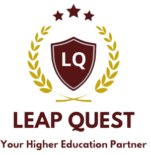Kellogg | GMAT Waivers and Essay Tips
Kellogg To Waive GMAT/GRE Exams for Round 2 Applicants Northwestern Kellogg School of Management, one of the top five B-schools in the United States, is offering to waive its test score requirement for those applying to the part- or full-time MBA programs who have been recently laid off from their jobs in the technology field. The waiver of either the Graduate Record Exam or the Graduate Management Admission Test is applicable to Kellogg’s Round 2 applications for full-time and part-time programs. Round 2 applications are due January 4 for Kellogg’s Evening & Weekend program, and January 10 for its full-time programs. Kellogg is urging the high-performing talent of the tech industry to consider studying on the shores of Lake Michigan, where the school has cultivated a rich reputation from its storied history of innovation, creativity, and empathy. Casualties of recent mass layoffs and others “can apply to Kellogg by providing their transcripts, resume and application which will also include a brief essay on their work experience and most recent role as well as what they hope their transformation will be and how it will advance them,” writes Greg Hanifee, Kellogg’s associate dean of degree programs and operations, in a blog post on November 14. In a year fraught with uncertainty and Covid-related MBA admissions changes, it feels reassuring that the MBA essays for Kellogg Northwestern remain unchanged. The key to delivering a series of standout essays to Kellogg is to embrace your genuine story. Weaving an authentically crafted narrative that conveys your passions and clarity of purpose — in a way that elicits emotional impact — this is the secret sauce in creating a connection to an admission reader’s heart. Do this successfully, and you’ll be embraced in return: Among Kellogg’s signature traditions during MBA orientation is the moment when the Dean of Admissions offers a rousing speech called “One of You,” which runs down a list of remarkable highlights about new students. What this means for MBA candidates is that there’s a place for you based on your true, authentic self. First, you’ll want to understand why Kellogg is asking each question and what adcom is hoping to uncover. The clues, of course, are embedded within the questions themselves. Let’s start decoding, piece by piece. ESSAY 1: Kellogg’s purpose is to educate, equip and inspire brave leaders who create lasting value. Provide a recent example where you have demonstrated leadership and created value. What challenges did you face and what did you learn? (450 words) “Kellogg’s purpose is to educate, equip and inspire brave leaders who create lasting value.” To unpack the opening statement: What the question is asserting here is that walking through Kellogg’s door means that you’re not only going to receive a world-class MBA, but you’re also expected to add value by engaging in the classroom, the greater community and, ultimately, the world as a Kellogg alum. How will you drive the type of MBA experience that leaves your classmates wishing they had more time with you? The MBA experience is only as unique as the collective contribution of the class, and this means that Kellogg is trying to uncover your capacity to lead and participate in this collective experience during school and beyond. “Provide a recent example where you have demonstrated leadership and created value.” This part is directed at your specific leadership experience. Kellogg is trying to get a sense of who you are as a leader, and how you’ve shaped the organizations and communities in which you’re involved. The words to pay attention to are “created lasting value.” (This notion is so important it’s mentioned twice in the same prompt.) This is your opportunity to tell a story. Think through — why must you tell this story? How is the world better off from you having told this story? What leadership experiences can you share that reveal you’ve succeeded in elevating people, places and/or circumstances because of your conscious participation? What story will illuminate the significance of this shift, showcasing the situation before you came in, while you were there and after you’ve left? “What challenges did you face and what did you learn?” This is both the substance and resolution of your story. Who are the characters of your story? What setting are you in? What are the stakes of you not succeeding in your leadership challenge? How did you grow through the challenge? Don’t just share what you learned and stop there; essays that nail this question will also demonstrate how what you learned will translate to your unique contribution towards the Kellogg class of 2021, during your MBA and beyond. ESSAY 2: Values are what guide you in your life and work. What values are important to you and how have they influenced you? (450 words) “Values are what guide you in your life and work.” Your values aren’t a laundry list of adjectives, they’re emblematic of the beliefs that guide your decisions, actions and engagement in the things that matter most to you. Similar to Stanford GSB’s iconic ‘what matters most to you and why’ essay, Kellogg is looking to know what it is it that inspires, drives and motivates you. Candidates who do the thoughtful introspection required to write with authenticity and substance will deliver a valuable view into who they are as a person, not just the inner workings of a dazzling intellect. Your values inherently extend beyond yourself, into your relationships with people and the places where you imagine making a positive impact. “What values are important to you and how have they influenced you?” This is an opportunity to tell a story that’s personal, vulnerable and honest. You might lead with one specific value and the emblematic story that helps connect the dots between what has shaped you and who you’ve become. As you look back, what are the seminal moments, influences and interactions that have forged you into




